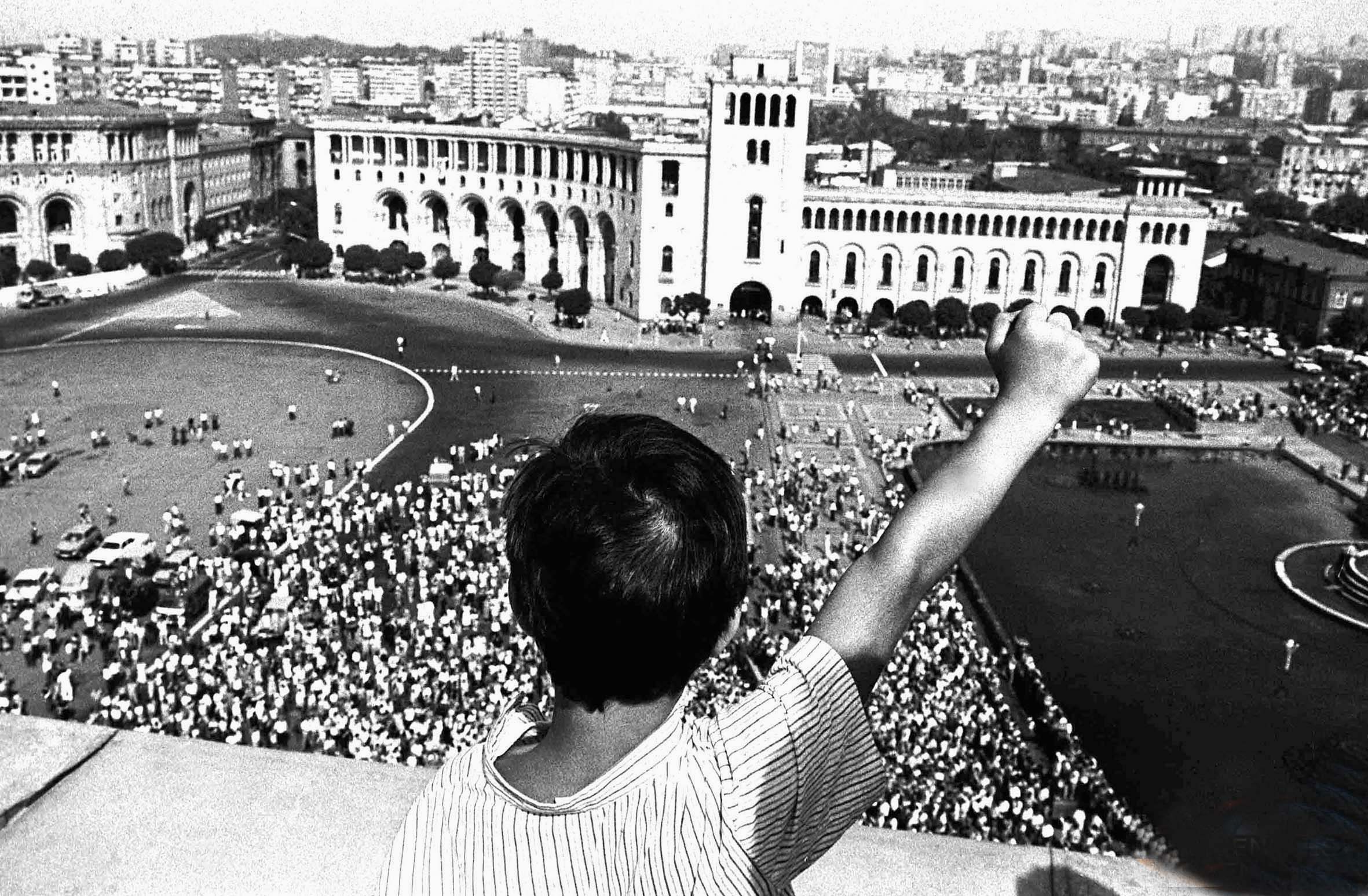For the past three decades, the month of September was a dual celebration month for all Armenians. We celebrated the independence of the Republic of Artsakh on September 2 and the independence of the Republic of Armenia on September 21.
This year, however, we will celebrate only the independence of Armenia, because the Republic of Artsakh is no more. Twenty-five days after its 32nd independence anniversary, the Republic of Artsakh was seized by Azerbaijan, and more than 100,000 Artsakh Armenians were forcibly displaced from their millennial homeland.
In 2020, the unprovoked attack of Azerbaijan on Armenia, followed by the 44-day war, shook Armenia from its foundations. Through deliberate harassment, Azerbaijan aimed to derail its negotiations with Armenia, disregarded implementing the November 9, 2020 tripartite agreement and through political pressure and violence tried to impose its own terms. Time and again, it violated the sovereignty and security of Armenia and Artsakh. On December 6, 2022, it blockaded the 120,000 Armenians of Artsakh, and with the closure of the Berdzor Corridor (Lachin Corridor), deprived the people of Artsakh of food, supplies, medicine, other basic necessities and the right to move freely. Finally, the most devastating blow came in the latter days of September 2023, when Azerbaijan, assisted by Turkey and its allies, with massive force attacked Artsakh, massacring a number of Armenians and threatening the rest of the Armenian population with an ultimatum to surrender or die.
Yes, this September, we Armenians have mixed feelings. We are not celebrating the independence of the Republic of Artsakh. This September, our Artsakh compatriots also have strongly mixed feelings. While, on the one hand, they are grateful to have escaped ethnic cleansing by the Azeris and found safe refuge in Armenia, on the other hand, they have great nostalgia — they want to be in their millennial homeland. While many of them are grateful to the people of Armenia for their hospitality, there are others who are unhappy, because their aspirations for a free Artsakh are partly restricted for political considerations. They have mixed feelings, because, while they are free, their leaders are still in the Azeri jails, and the fate of many others are unknown.
As for the Republic of Armenia, there are similar mixed feelings toward the state, both in the homeland and diaspora. While many are happy to have a free Armenia, there are others who have strong reservations about the present administration. While many cherish the sovereignty of freedom of the Republic, others are critical of the present leadership and attempt to topple and replace it. Such extreme measures are not democratic and can be dangerous. On the other hand, the violation of free speech by the government is detrimental to democracy.

The present administration of Armenia, like all administrations of democratic states, is not perfect. It has its faults and foibles, its shortcomings and misdeeds. While we may dislike the present administration and its policies, we should not lose sight of the fact that administrations are not permanent realities; they come and go. Beyond our mixed feelings and attitudes, there is an ultimate reality: our homeland Armenia.
At the present time, the Republic of Armenia is in a precarious situation. There are external forces that threaten the peace, tranquility and even the existence of the state. There are also internal forces that are divisive. The republic is divided; the diaspora is also divided. We desperately need national unity. Undoubtedly, the administration, and especially Prime Minister Nikol Pashinyan, has to employ Solomon’s wisdom to navigate the republic through the violent storms it encounters.
Prime Minister Pashinyan and his administration have little or no control over external forces, but they have the prerogative to call on the spiritual and political leaders of both Armenia and the diaspora to bring about internal unity. They can seek their advice to deal with the threatening situation. To do this requires wisdom, humility, magnanimity and true patriotism.
Armenians belong to one nation united in destiny and indivisible as an entity. Thus, wherever Armenians are, whatever the constituent elements of that entity, whatever ideology we cherish, we are the same on at least one basis: Armenianness.
At this stage, all Armenians should realize that beyond our mixed feelings, our likes and dislikes, ambitions and egos, we should demonstrate unselfish love toward our country and our countrymen. True Armenian patriots establish friendships with compatriots of different political, religious and ideological affiliations based on shared cultural and ethnic interests and concerns.
Yes, all of us have to go beyond our feelings, beyond ourselves. Today, once again, our patriotism is on trial, to see whether our profession of ideals matches our deeds.
Armenians belong to one nation united in destiny and indivisible as an entity. Thus, wherever Armenians are, whatever the constituent elements of that entity, whatever ideology we cherish, we are the same on at least one basis: Armenianness. We all have a common history, memory, hope and destiny.
On the 33rd anniversary of the independence of the Republic of Armenia, let us thank God for our homeland and wholeheartedly support it.



Be the first to comment